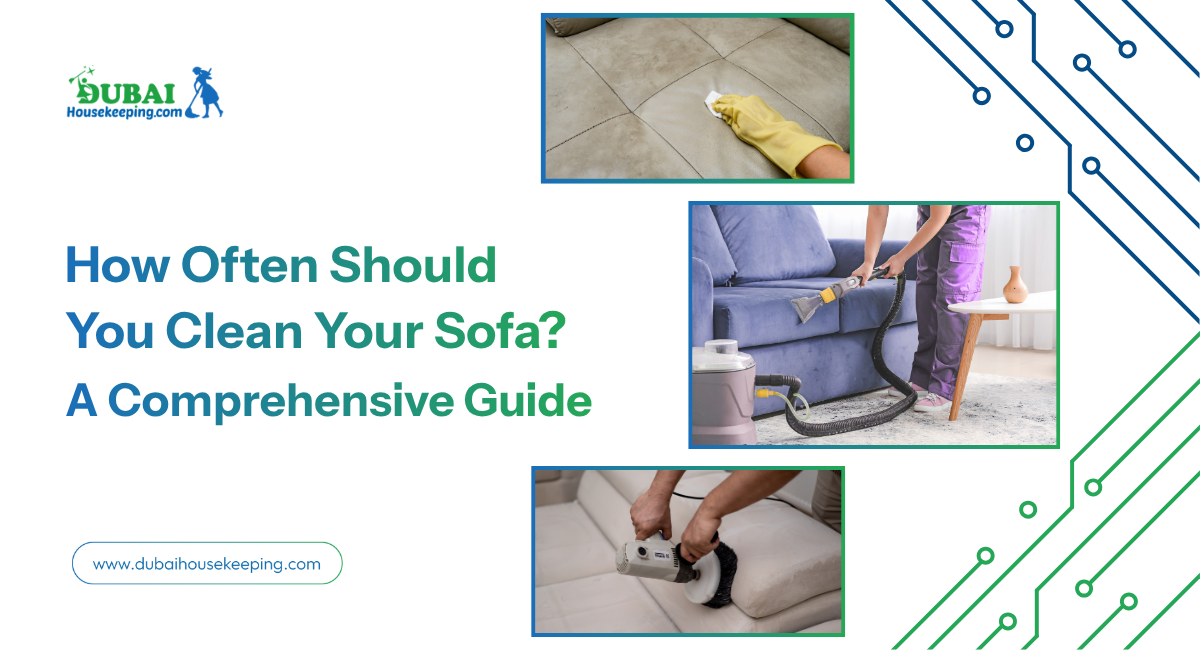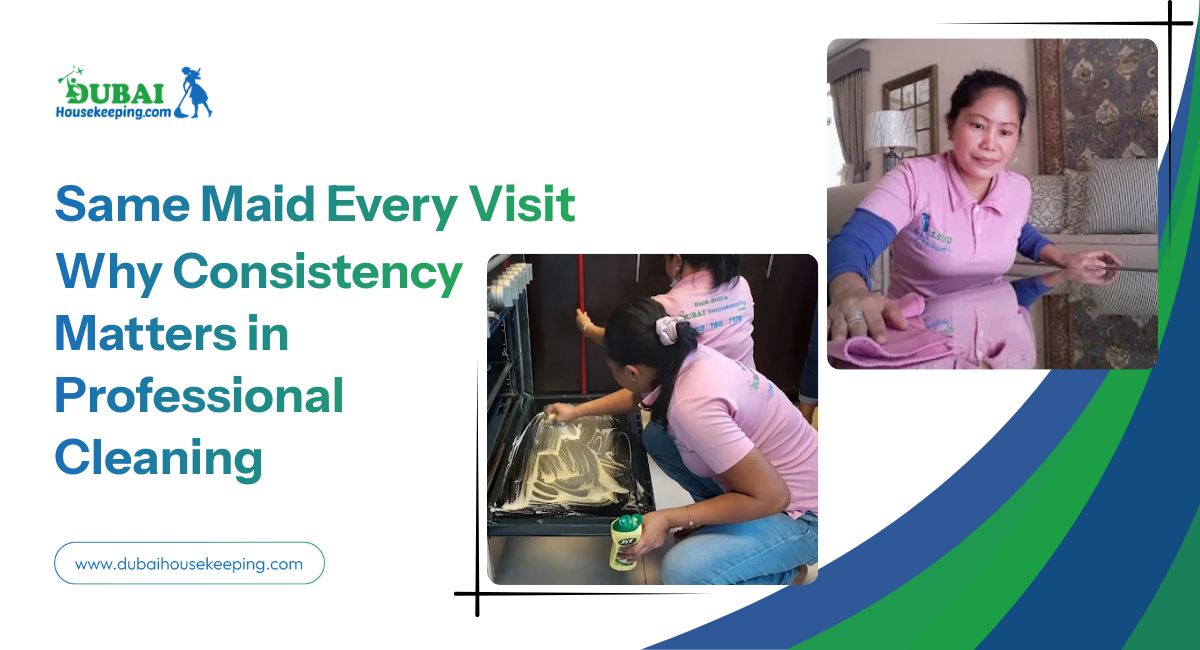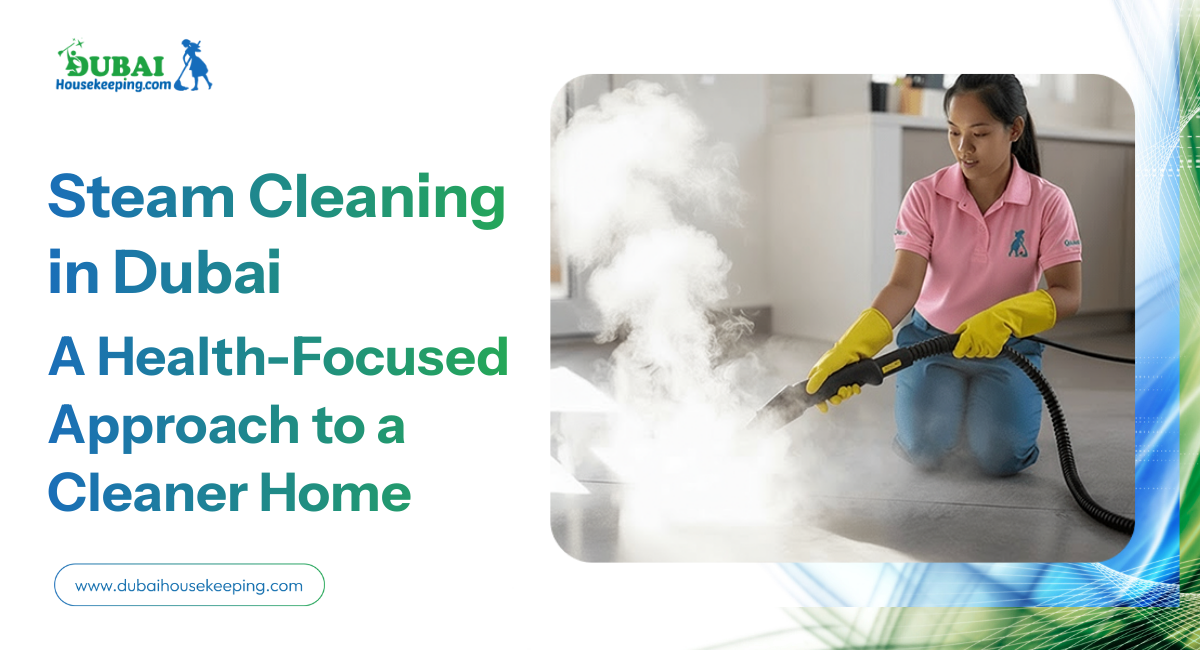Your sofa is more than just a place to sit—it’s a centrepiece of comfort and style in your living space. From family movie nights to casual gatherings with friends, sofas bear the brunt of everyday life. Over time, dirt, dust, spills, and allergens accumulate, gradually diminishing the sofa’s appearance and even affecting your home’s hygiene. So, the question arises: how often should you clean your sofa?
This comprehensive guide will help you understand the importance of regular cleaning, the factors influencing cleaning frequency, and practical tips to keep your sofa fresh and long-lasting.
Why Regular Sofa Cleaning Matters
Many people underestimate the impact of sofa cleanliness on health and home aesthetics. Sofa cleaning is not just about appearances—it plays a significant role in maintaining hygiene and extending your furniture’s life.
- Prevents Dust and Allergens: Sofas, especially upholstered ones, act as magnets for dust, pollen, and pet dander. These tiny particles settle into the fabric over time, contributing to allergies and respiratory problems. Regular cleaning helps reduce these allergens, keeping your indoor air quality healthier.
- Reduces Bacteria and Mold Growth: Accidental spills, sweat, and food crumbs create a perfect environment for bacteria and mold to thrive. This is particularly true in humid climates. Cleaning your sofa regularly ensures a sanitary environment for your family.
- Maintains Appearance: A well-maintained sofa enhances the overall aesthetics of your living space. Frequent cleaning prevents stains from setting and keeps the fabric vibrant and smooth, preserving your furniture’s beauty.
- Prolongs Sofa Lifespan: Regular maintenance prevents the fabric and frame from deteriorating prematurely. Investing a little time in cleaning now can save significant money in the long run by avoiding costly replacements.
Factors That Affect Sofa Cleaning Frequency
Not all sofas are created equal. Several factors determine how often your sofa should be cleaned:
1. Material & Fabric Type
Different fabrics have different cleaning requirements. Here’s a quick guide:
| Fabric Type | Suggested Cleaning Frequency |
|---|---|
| Leather | Wipe weekly, deep clean & condition every 6–12 months |
| Microfiber | Vacuum weekly, professional cleaning annually |
| Cotton/Linen | Vacuum weekly, deep clean every 3–6 months |
| Velvet/Delicate fabrics | Vacuum gently weekly; professional cleaning 1–2 times a year |
2. Household Lifestyle
- Pets: Cats and dogs shed fur and sometimes bring dirt or odours. Homes with pets require more frequent cleaning.
- Children: Sofas in homes with kids are more prone to spills and stains, making regular maintenance crucial.
- High Traffic Areas: If your sofa sees daily use, you’ll need to clean it more often than a rarely used piece in a guest room.
3. Environmental Factors
Dusty environments or areas with high humidity can accelerate dirt accumulation. Seasonal changes—like post-winter cleaning or spring refresh—also influence cleaning frequency.
Recommended Cleaning Frequency by Sofa Type
1. Leather Sofas: Leather is durable but still requires regular maintenance.
- Weekly: Wipe down with a damp cloth to remove dust and light dirt.
- Monthly: Use a leather conditioner to keep it soft and prevent cracking.
- 6–12 Months: Deep clean and treat minor scratches with a professional-grade leather cleaner.
2. Fabric Sofas: Fabric sofas are comfortable but attract dust and stains easily.
- Weekly: Vacuum thoroughly using an upholstery attachment.
- As Needed: Spot clean spills immediately with mild detergent or a fabric-safe cleaner.
- Every 6–12 Months: Schedule a professional deep cleaning to remove embedded dirt and odors.
3. Velvet & Delicate Fabrics: Delicate fabrics need extra care to avoid damage.
- Weekly: Gently vacuum with a soft brush attachment.
- As Needed: Spot clean small stains immediately.
- 1–2 Times a Year: Professional cleaning is recommended to maintain texture and sheen.
4. Sectionals & Modular Sofas: These sofas often have removable parts, cushions, and covers.
- Clean individual sections based on usage patterns.
- Wash covers if removable or follow the specific fabric cleaning instructions.
DIY Sofa Cleaning Tips
You don’t always need a professional service for everyday maintenance. Here are some practical do-it-yourself tips:
1. Vacuum Regularly
Use an upholstery attachment to remove dust, crumbs, and pet hair. Weekly vacuuming prevents particles from embedding into the fabric.
2. Spot-Clean Spills Immediately
Accidents happen, but prompt action prevents permanent stains. Blot (don’t rub) spills using a clean cloth and mild detergent.
3. Homemade Solutions
- Baking Soda: Sprinkle on fabric, leave for 15–20 minutes, then vacuum to remove odors.
- Vinegar and Water: Mix equal parts for a gentle stain remover on most fabrics (test first).
4. Steam Cleaning
Steam cleaning sanitizes and lifts dirt from deep within the fabric. Use caution with delicate fabrics and always follow manufacturer guidelines.
5. Fluff Cushions
Regularly flipping and fluffing cushions prevents uneven wear and keeps your sofa looking fresh.
Best Way to Protect a Leather Sofa
Protection 1: Guard Against Drying and Cracking (Crucial in Dry Climates)
How to Protect: Leather requires consistent moisture replenishment to remain supple. You must apply a high-quality, pH-balanced leather conditioner formulated for furniture every 6 to 12 months. In dry, high-AC environments like Dubai, this is non-negotiable to prevent the leather from prematurely drying out, stiffening, and cracking.
Protection 2: Prevent Sun and Heat Damage
How to Protect: Direct sunlight (UV rays) and intense heat sources are leather’s biggest enemies. Position the sofa out of the path of direct sun or use blinds/curtains during peak hours. Also, ensure the sofa is not directly hit by warm or cold air blasts from A/C units or radiators, as this speeds up moisture loss and fading.
Protection 3: Handle Spills and Daily Soil
How to Protect: For any spill, act immediately: blot the liquid gently with a clean, soft white cloth. Never rub, as this forces the liquid deeper. For daily soil and dust, wipe the surface weekly with a soft, dry or slightly damp cloth. Only use leather-specific cleaning products; avoid harsh household chemicals like window cleaner or ammonia, which strip the finish.
Professional Sofa Cleaning: When & Why
While regular DIY cleaning helps maintain your sofa’s day-to-day freshness, there’s only so much home methods can achieve. Over time, dust, stains, and allergens penetrate deep into the upholstery—far beyond the reach of a regular vacuum or surface cleaner. That’s where professional sofa cleaning services come in. They provide an intensive, restorative clean that not only enhances the look of your sofa but also improves the hygiene and comfort of your living space.
Benefits of Professional Sofa Cleaning
- Removes Deep Stains and Odors: Professional cleaners use advanced equipment and specialized stain-removal agents that penetrate deep into the fabric to eliminate stubborn marks and trapped odors. Whether it’s food spills, coffee stains, or lingering pet smells, a professional service can effectively restore your sofa’s freshness without damaging the material.
- Sanitises and Eliminates Bacteria: Sofas can harbor invisible bacteria, dust mites, and allergens that trigger respiratory issues or skin irritation. Professional cleaners use high-temperature steam extraction methods and antimicrobial treatments to sanitize your furniture thoroughly. This process ensures a cleaner, safer environment—especially beneficial for households with children, elderly members, or pets.
- Preserves Fabric Integrity: Improper cleaning techniques or harsh chemicals can weaken fibres and cause fading. Professional sofa cleaners are trained to identify different fabric types and use the correct products for each. From delicate silk to robust leather, they ensure every material is treated with care, extending your sofa’s lifespan and maintaining its original texture and colour.
- Saves Time and Effort: Deep cleaning a sofa is a labour-intensive task that requires time, equipment, and expertise. By hiring professionals, you save yourself hours of work and avoid the risk of accidental damage. In just a few hours, experts can clean, sanitise, and dry your sofa—leaving it ready to use the same day.
- Uses Eco-Friendly and Safe Solutions: Many modern sofa cleaning services, particularly in eco-conscious cities like Dubai, now use non-toxic, biodegradable, and organic cleaning agents. These products are gentle on fabrics and safe for children and pets, providing a healthier and more sustainable cleaning option without compromising results.
- Extends the Lifespan of Your Furniture: Over time, dirt and oils from skin contact can deteriorate fabric fibers, causing discoloration and wear. Professional cleaning removes these residues effectively, keeping the upholstery soft and strong. Consistent professional maintenance can add several years to your sofa’s life, making it a smart long-term investment.
When to Hire a Professional
Even with regular vacuuming and spot-cleaning, there are times when professional care is essential. Here’s when you should consider booking a service:
- Annual Deep Cleaning: Scheduling a yearly deep cleaning removes deeply embedded dirt, dust mites, and bacteria, keeping your sofa fresh, hygienic, and well-maintained. Homes with pets or kids benefit from cleaning twice yearly.
- Persistent Stains and Odors: When DIY cleaning fails to remove tough stains or lingering smells, professionals use specialized products and techniques to eliminate issues like wine, ink, or pet stains without damaging your fabric.
- Delicate or High-End Fabrics: Luxury materials like velvet, silk, or linen need expert handling. Professional cleaners use safe, fabric-specific techniques—like dry or steam cleaning—to maintain the fabric’s texture, softness, and appearance.
- After Major Spills or Water Damage: Post-spill or water exposure, professional cleaning prevents mould, bacteria, and fibre weakening. Prompt service restores cleanliness, removes moisture, and protects your sofa from long-term structural or odour problems.
- Heavy Household Use: Busy households with kids, pets, or frequent guests should schedule cleaning every 3–6 months. It removes deep-seated dirt, crumbs, and oils, maintaining both hygiene and the sofa’s visual appeal.
- Before Special Occasions or Moving: Professional cleaning before events or moving refreshes your sofa’s look and feel. It ensures a spotless, inviting appearance—perfect for impressing guests or settling comfortably into a new home.
Eco-Friendly Cleaning in Dubai
In cities like Dubai, expert upholstery cleaning services have evolved to meet both hygiene and sustainability needs. Many reputable providers now offer organic and chemical-free cleaning solutions, minimizing harsh residues and protecting indoor air quality. These eco-conscious techniques not only safeguard your sofa’s materials but also contribute to a healthier home environment.
Whether you prefer steam extraction, dry foam, or water-based organic cleaning, professional cleaners in Dubai can tailor the process based on your sofa’s fabric and condition. This combination of expertise, technology, and green cleaning solutions makes professional care a worthwhile investment for both luxury and everyday furniture.
Maintaining Your Sofa Between Cleanings
Keeping your sofa clean isn’t just about occasional deep cleans—it’s about consistent care and mindful daily habits. Simple maintenance routines can dramatically extend your sofa’s lifespan, preserve its appearance, and keep your living space inviting. By making these small adjustments, you can prevent premature wear, reduce dirt buildup, and enjoy a comfortable, spotless sofa year-round.
- Use Protective Covers or Throws: Protect your sofa from spills, pet fur, and everyday wear by using removable covers or throws. They’re easy to wash and instantly refresh your sofa’s look and hygiene.
- Rotate Cushions: Regularly rotating and flipping cushions helps distribute pressure evenly, preventing sagging and ensuring consistent comfort and appearance across your entire sofa.
- Avoid Eating on the Sofa: Food and drink spills are leading causes of stains and odors. Creating a no-food rule helps maintain fabric cleanliness and keeps your sofa smelling fresh longer.
- Keep Pets Off or Use Pet-Friendly Covers: Pets can shed fur and bring in dirt. Designate a washable blanket or pet cover to protect upholstery while allowing your furry companions to lounge comfortably.
- Keep the Surrounding Area Clean: Dust, debris, and air pollutants from windows or floors can settle on sofas. Regularly vacuuming and dusting nearby areas reduces buildup and keeps your sofa spotless.
Conclusion
Sofa cleaning is not just a chore—it’s an essential part of maintaining a clean, healthy, and beautiful living space. How often you should clean your sofa depends on several factors: the type of fabric, household lifestyle, environmental conditions, and usage patterns. Regular maintenance, including weekly vacuuming, immediate spot cleaning, and occasional professional deep cleaning, keeps your sofa hygienic and looking new. Small daily habits, like using protective covers and rotating cushions, further extend its life.
Investing in proper sofa care today ensures comfort, longevity, and a welcoming environment for your family and guests. If you want the best results with minimal effort, consider professional cleaning services—they provide deep sanitation and fabric care, leaving your sofa refreshed and long-lasting. Refresh your home today! Schedule your sofa cleaning and experience the comfort, hygiene, and beauty of a spotless living space.










